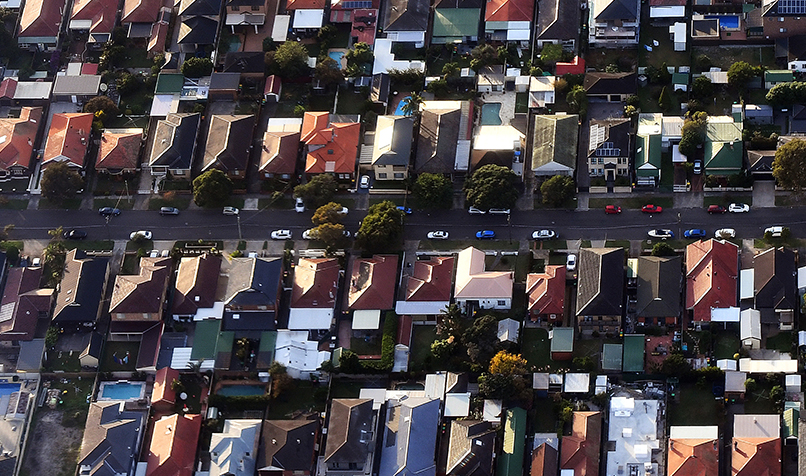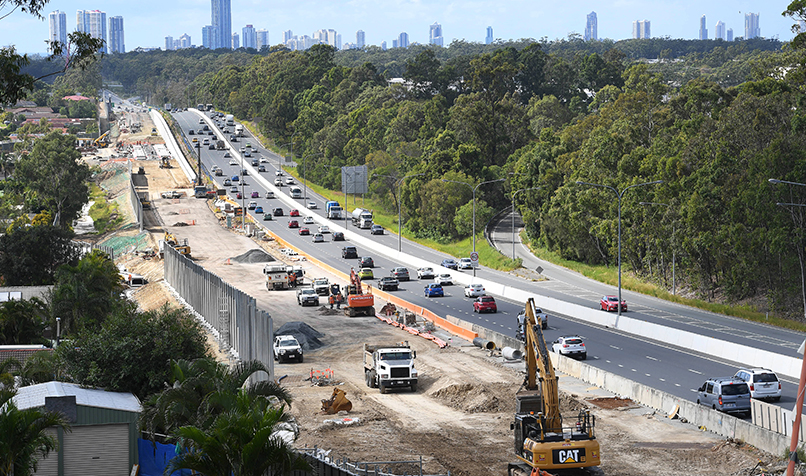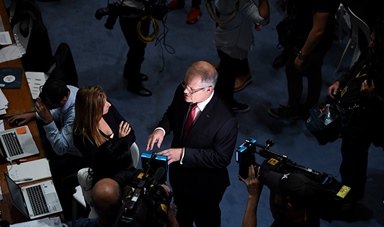Loading component...
At a glance
Australia’s Government is optimistic about the prospects for the global and Australian economy, said Federal Treasurer Scott Morrison in delivering his budget speech last night.
Morrison said the nation was moving towards the end of a difficult period, with signs of global recovery “and there is potential for better days ahead”.The relatively upbeat comments set the tone of a budget with a theme of “fairness, security and opportunity” that combined cuts to welfare with significant infrastructure spending and moves to help first-home buyers.
CPA Australia welcomed the investment in infrastructure, an extension of the instant asset write-off for small business and a new Medicare Guarantee Fund to increase health funding to an ageing population.
Morrison has placed government spending on target to get the budget into a A$7.4 billion surplus in 2021, and says from 2018/19 the government will no longer be borrowing to pay for everyday expenses.
With forecast economic growth of 2.75 per cent in 2017/18 that has meant winners and losers in this year’s budget.

The property industry
The housing market gets a boost from the new First Home Super Savers Scheme allowing first home buyers to save for a home through their superannuation fund, contributions and earnings taxed at 15 per cent, rather than their marginal rates.
Withdrawals will be taxed at their marginal rate, less 30 percentage points.
Contributions will be limited to A$30,000 per person in total and A$15,000 per year.
The government will also allow people aged 65 or over to make a non-concessional contribution into their super of up to A$300,000 from the proceeds of selling their principal residence.
The incentive is designed to free up larger homes.
The government plans to step up release of Commonwealth land for housing. It has barely touched negative gearing but tightened some rules on deductions.

Infrastructure and engineering
This is a big spending, big project budget, with A$75 billion earmarked for infrastructure spending in the next 10 years. This includes a new Western Sydney Airport, with work starting in the second half of next year.
In addition, Morrison announced a A$10 billion National Rail Program to upgrade rail around the country.

Health
A higher Medicare levy will channel funds into the health sector, with Morrison announcing the National Disability Insurance Scheme (NDIS) will be fully funded.
There will also be extra funding for mental health and veterans’ mental health.
Losers
Taxpayers
All taxpayers will pay a higher Medicare Levy, rising from 2 per cent to 2.5 per cent from 1 July 2019. The increase is expected to raise A$8 billion to fund health care.
Banks
Bank customers will be able to take complaints to a new Australian Financial Complaints Authority. Bankers might feel they have dodged a bullet because the Authority is likely to be preferable to a Royal Commission into the banking industry.
Morrison also announced tighter controls over bank executives, higher fines for misconduct and a new permanent Australian Competition and Consumer Authority task force to investigate competition in the banking and financial system.
A new 6 basis-point levy on the liabilities of the five major banks, starting July 1, will raise A$6.2 billion for budget repair.

Foreign property buyers
Foreigners will lose the main residence capital gains tax exemption on their Australian homes. If they buy property and fail to occupy or lease it, they will pay an annual A$5000 levy.
Developers will be prevented from selling more than 50 per cent of new developments to foreign investors.
Welfare recipients
Welfare recipients will face tougher obligations, including a new demerit point system for people who miss job interviews.
Employers of foreign workers
Employers will pay an annual foreign worker levy of A$1200 or A$1800 per worker per year on temporary work visas and a A$3000 or A$5000 one-off levy for those on permanent skilled visas.
Multinational companies
The government is toughening the Multinational Anti-Avoidance Law to extend the rules to structures involving foreign partnerships or trusts and clamping down on aggressive structuring using hybrids.

